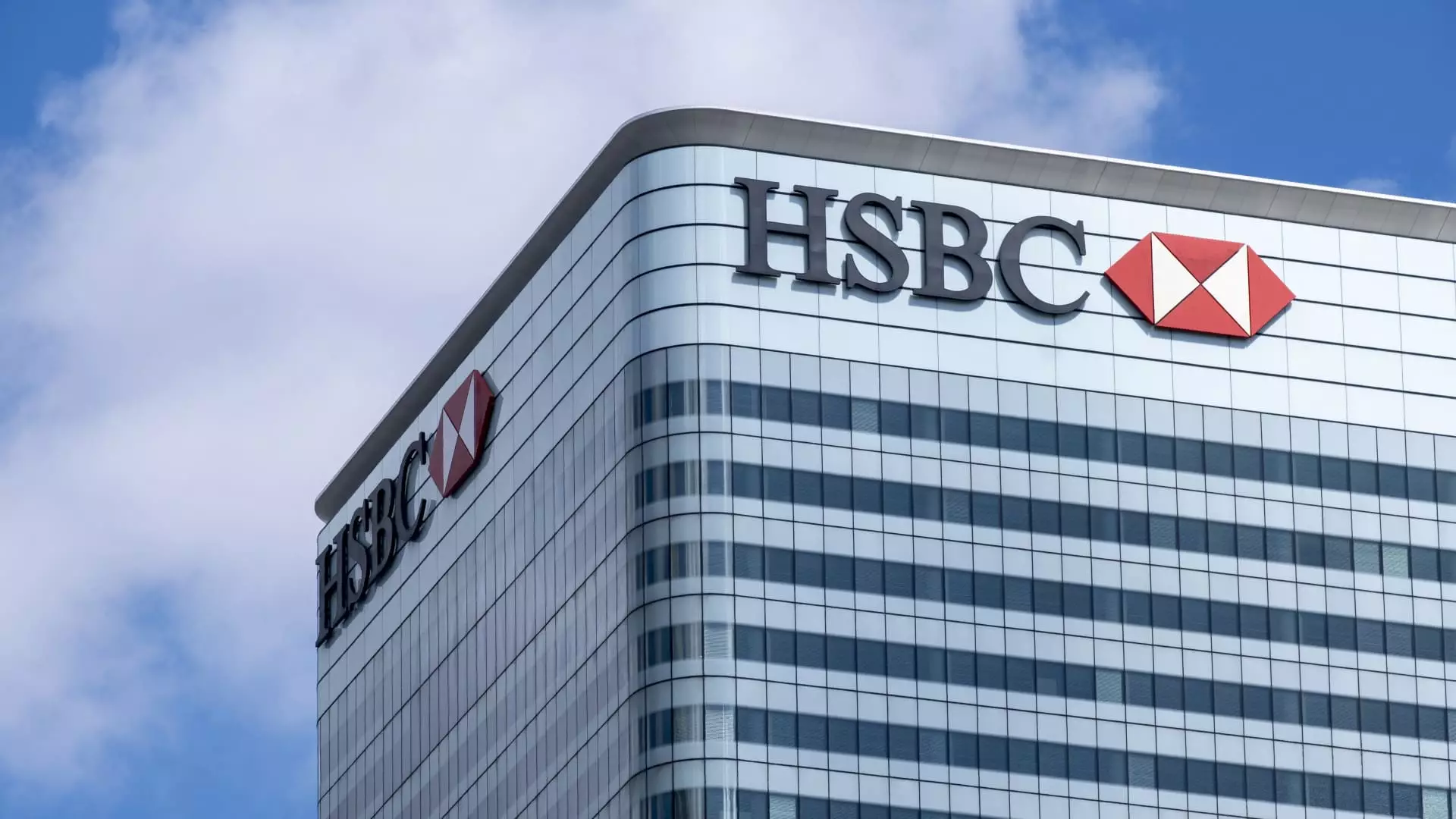On a noteworthy Tuesday, HSBC Holdings plc, the largest lender in Europe, revealed its third-quarter earnings, posting a pre-tax profit of $8.5 billion, which exceeded analysts’ expectations. This figure represents a commendable 10% increase from the $7.71 billion reported in the same quarter of the previous year. A robust revenue growth trajectory, particularly in their wealth and personal banking divisions, served as a catalyst for this financial performance. Final revenue figures climbed to $17 billion, a 5% increase from the $16.2 billion announced a year earlier. Such results demonstrate the bank’s resilience in these shifting economic climates, providing reassurance to stakeholders amid concerns about falling interest rates.
Despite concerns surrounding the sustainability of higher interest rates, HSBC’s results are especially impressive. The bank’s higher interest income has been a significant contributor to its profitability, even as the net interest margin has dipped slightly from 1.7% to 1.5% year-on-year. Michael Makdad, a senior equity analyst at Morningstar, summarized the earnings as “solid,” noting that while net interest income remained stable, the overall rate cycle appears to be softening. This nuanced analysis reflects a combination of optimism and caution in a landscape where banks globally are reckoning with the possibility of declining net profit margins.
In yet another significant maneuver, HSBC announced a share repurchase of up to $3 billion, marking a total of $9 billion in buybacks initiated this year. Already, the bank had previously declared $3 billion share buybacks in both the first and second quarters. This proactive approach underscores HSBC’s commitment to delivering value to its shareholders, especially in a time when many financial institutions are grappling with dwindling profitability. Furthermore, the approval of a third interim dividend of $0.1 per share reflects optimism among the bank’s leadership regarding its fiscal health and long-term strategy.
The rise in share prices by 3.5% during Hong Kong afternoon trading following the earnings report indicates positive market sentiment. Investors seem to be reassured by the continued fiscal prudence exhibited by HSBC. However, there hangs a shadow of uncertainty regarding the future trajectory of profitability amid signal shifts in the interest rate environment.
In tandem with its robust earnings report, HSBC is advancing toward restructuring its operations into four distinct business units. This strategic shift aims to delineate “Eastern markets” from “Western markets,” effectively creating a more agile and streamlined organization. The new operational structure will take effect in January and seeks to reduce redundancy in processes and accelerate decision-making. With this transition, HSBC aims to realign its resources effectively to ensure flexibility amid varying market conditions.
The appointment of Georges Elhedery as the new chief executive is emblematic of this forward-thinking approach. Since his inception in July, following the retirement of Noel Quinn, there have been discussions involving cost reduction measures, potentially saving as much as $300 million. Notably, Elhedery’s background as the former chief financial officer equips him with unique insights into operating efficiencies that the bank can harness as they adapt to the new landscape.
HSBC’s third-quarter results illustrate not only a strong financial performance but also a clear commitment to repositioning itself amid potential market fluctuations. Emphasizing both shareholder value through increased buybacks and dividends alongside strategic restructuring, the bank seems poised to navigate an evolving economic environment. As market conditions shift, the effectiveness of HSBC’s measures will undoubtedly be scrutinized, but their recent performance and strategic maneuvers suggest a commitment to thriving amidst uncertainty. The bank’s focus on innovation, effective resource allocation, and flexibility indicates its determination to remain at the forefront of the banking sector, ready to tackle whatever the future may hold.


Leave a Reply